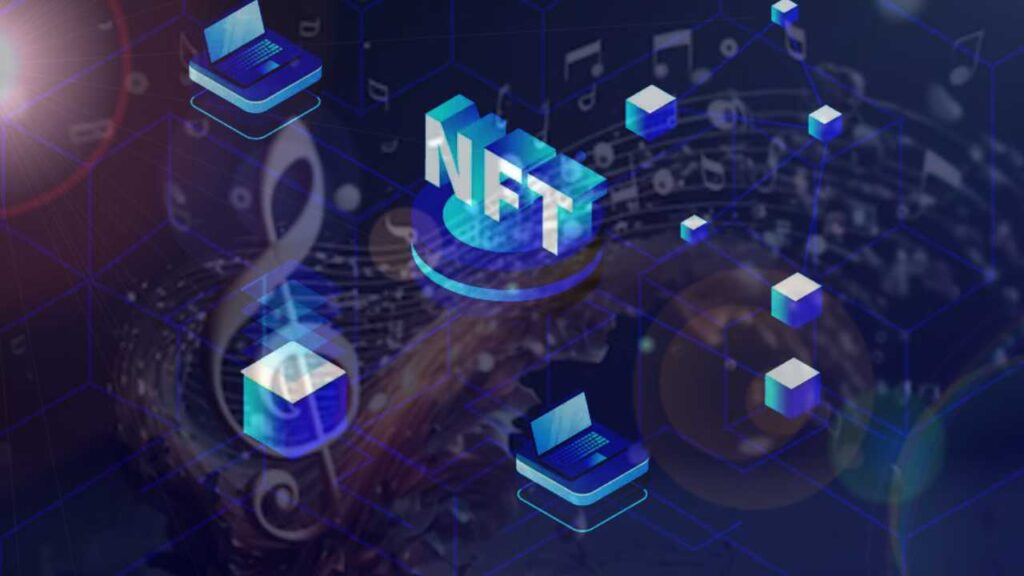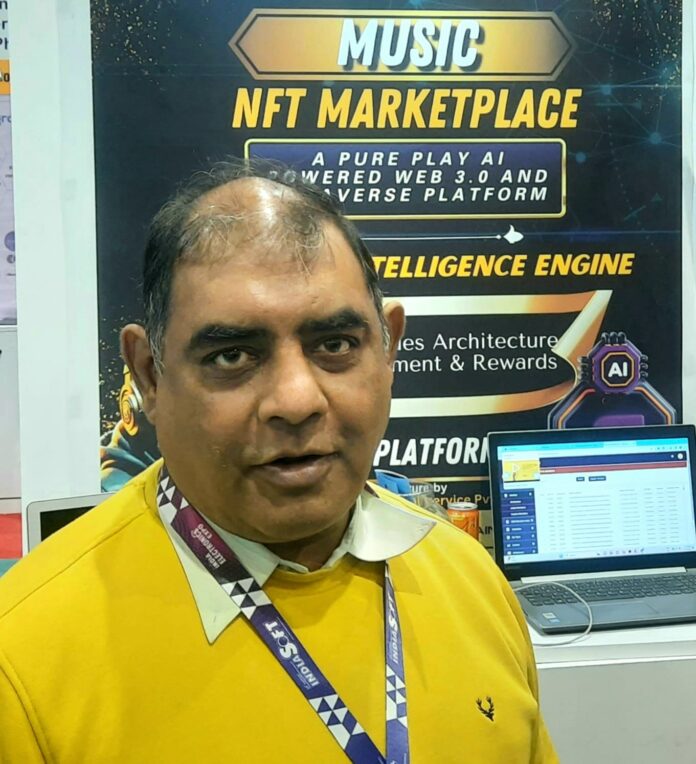Mad Over Music, a technology startup incubated at Apiary, a Center of Entrepreneurship in Blockchain Technology led by the Software Technology Parks of India under the Ministry of Electronics and Information Technology, Government of India, is set to revolutionize the music industry. Their approach involves democratizing music ownership through the utilization of non-fungible tokens (NFTs).
In an insightful conversation with The Interview World, Sanjay Bhardwaj, the CTO of Mad Over Music, emphasizes that the startup is not only empowering musicians in smaller cities but also reshaping music ownership dynamics. Distributing music copyrights and democratizing public stake through the innovative use of NFTs have achieved this transformation. The following highlights encapsulate the key points from his interview.
Q: What innovative strategies and approaches is Mad Over Music employing to revolutionize the music industry and reshape traditional paradigms?
A: Starting from this perspective, Haryana boasts numerous music videos across smaller cities and villages, creating a vibrant music scene. Our initiative focuses on providing a platform for emerging artists, producers, and individuals within this ecosystem. This platform allows them to not only generate income but also secure micro-investments to produce their work. Eventually, this will unshackle them from the industry’s current control by a few powerful entities.
Instead of relying on a music industry controlled by a select few, we aim to empower the public. We desire that the hardworking people of Haryana, Punjab, and India as a whole leverage this opportunity. By facilitating access to funds and resources, we aim to dismantle the existing industry dynamics dominated by a “mafia.”
Our impact extends beyond the artistic realm, with one song generating job opportunities for at least 20 to 25 individuals. A single album project can employ 25 people, spanning roles in production, supporting artists, production art, and cinematography. This ensures widespread benefits within the community.
Our vision is not just about creating opportunities but also aligning them with the interests and career prospects of individuals. We strive to foster a multitude of opportunities for both personal growth and employment, prioritizing the welfare and aspirations of our community in Haryana, Punjab, and across India. This holistic approach is fundamental to our mission.
Q: Could you provide insights into the key components of your business model?
A: There are two key elements here – a blockchain and non-fungible tokens (NFTs) on that blockchain. Specifically, we utilize this technology for copyrighting songs. For instance, let’s value a song copyright at 10,000 or 1 lakh rupees. However, when selling a copyright to a producer for 1 lakh rupees, the artist often relinquishes any future influence over the song’s growth.
To address this, we propose a novel approach. Imagine dividing the 1 lakh rupees by 1 rupee, allowing 100,000 people to buy shares in the song at just 1 rupee each. These individuals become investors in the initial song, holding a stake and a say in its development.
This contrasts with the conventional scenario where only a few people might purchase a song. In our model, even individuals in remote villages can claim ownership, invest, consume, and contribute to the song’s value. This decentralized approach empowers a broader community, fostering a more inclusive and engaging music ecosystem.
Q: How can blockchain technology be leveraged to establish robust mechanisms preventing copyright violation?
A: Consider this scenario: when an individual purchases a song, he or she gains the ability to sell it to someone else. The concept revolves around copyright, where your investment grants you a copyright obtained from the Copyright Office, Department For Promotion of Industry and Internal Trade,
Ministry of Commerce and Industry, Government of India, forming a crucial part of the song’s prospectus.
Upon purchase, you acquire a unique copyright, ensuring non-fungibility and preventing replication. In essence, each song corresponds to a single copyright, serving as a form of Intellectual Property Rights (IPR). This copyright, representing the digital product, lacks transferability. However, multiple individuals, including yourself, can collectively share ownership of it or decide to sell it to others.
When the copyright is sold, it becomes part of a producer community, which leverages it for various opportunities. These exploiters introduce advertisements, generating revenue from the song. As consumers, we contribute to the distributed wealth creation, while also benefiting from the distributed wealth consumption model.
Q: What is the current number of clients in your portfolio, and could you provide insights into your plans for client acquisition and business growth?
A: We’ve recently acquired approximately 1500 subscriptions and successfully launched three songs, each garnering over a million views. Looking ahead, our strategic focus is on Haryana and Punjab at the moment, with plans to expand nationwide in the future.
In our upcoming ventures, we aim to cater to a diverse audience by incorporating 10 languages, including Bengali, Odia, and Bollywood. Our vision is to extend entertainment opportunities beyond major cities, reaching B and C class cities, enabling individuals to actively participate and create value within the entertainment industry.
Q: Is there an AI system available that can generate music in the style of specific artists?
A: We’re currently pursuing two approaches. Firstly, we’ve analyzed the social media reach of the last 50 songs, predicting their maximum potential reach and identifying content likely to go viral. This involves leveraging artificial intelligence (AI). Simultaneously, we’re actively engaged in developing music, notes, and related content. Although we’re in the midst of this ongoing effort, it’s important to note that we haven’t reached the desired level yet. In essence, it’s a work in progress.



